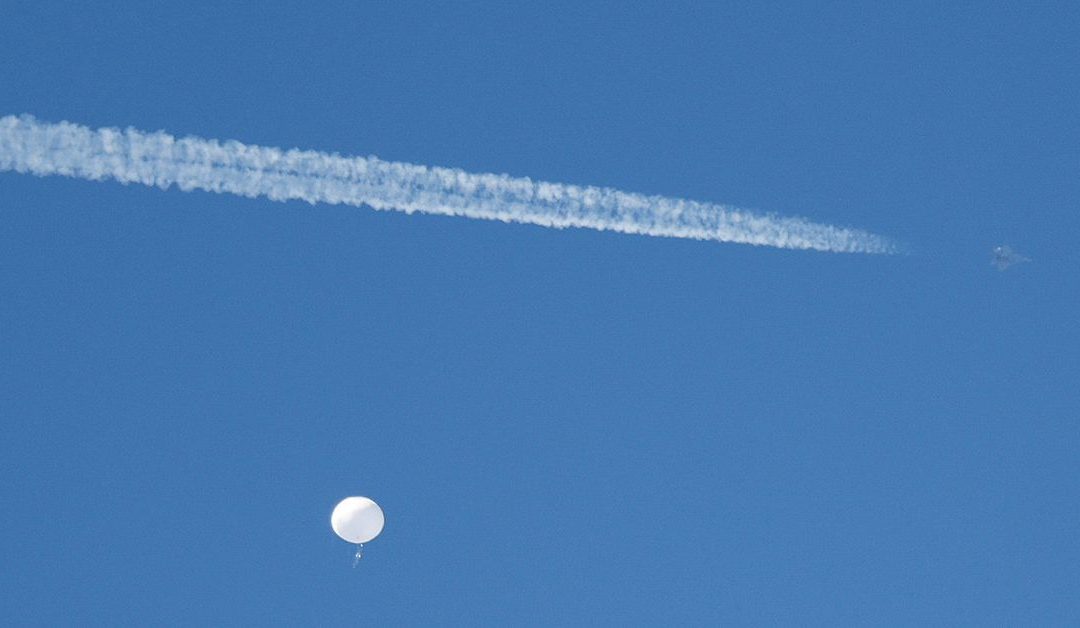In a dramatic move that could have far-reaching implications for Sino-U.S. relations, a U.S. military fighter jet shot down a suspected Chinese spy balloon off the coast of South Carolina on Saturday. The incident has triggered a flurry of speculation and political scrutiny, and has raised questions about the potential impact of the balloon’s presence on U.S. national security.
The balloon first entered U.S. airspace in Alaska on Jan. 28 before moving into Canadian airspace on Monday Jan 30 and then re-entering U.S. airspace over northern Idaho on Jan. 31. President Joe Biden had issued an order on Wednesday to take down the balloon, but the Pentagon had recommended waiting until it could be done over open water to safeguard civilians from debris crashing to Earth from thousands of feet (meters) above commercial air traffic.
At 2:39 p.m. (1939 GMT) on Saturday, an F-22 fighter jet from Langley Air Force Base in Virginia used a single AIM-9X supersonic, heat-seeking, air-to-air missile to shoot down the balloon about six nautical miles off the U.S. coast, over relatively shallow water. The shootdown concluded the military dimension to the spying saga, however, questions remain about how much information China may have gathered during the balloon’s trek across the United States.
The balloon’s presence over the United States had not been publicly disclosed until Thursday, leading to criticism from Republican opponents in Congress who argue Biden failed to act quickly enough. Former President Donald Trump, Biden’s potential rival in the 2024 election, called earlier this week for the balloon to be shot down, and has sought to portray himself as stronger than Biden on China.
The U.S. government had ordered a halt to flights in and out of three regional airports — Wilmington, Myrtle Beach and Charleston — due to what it said at the time was an undisclosed “national security effort.” The flights resumed on Saturday afternoon.
Washington had called the balloon’s appearance a “clear violation” of U.S. sovereignty and notified Beijing about the shootdown on Saturday. The Pentagon assesses that this balloon was part of a fleet of Chinese spy balloons. On Friday, it said another Chinese balloon was flying over Latin America.
The suspected spy balloon prompted U.S. Secretary of State Antony Blinken to postpone a visit to China this week that had been expected to start on Friday. China expressed regret that an “airship” used for civilian meteorological and other scientific purposes had strayed into U.S. airspace.
The shootdown of the Chinese spy balloon off the coast of South Carolina is a dramatic move that could have far-reaching implications for Sino-U.S. relations. The incident has triggered a flurry of speculation and political scrutiny, and has raised questions about the potential impact of the balloon’s presence on U.S. national security. It remains to be seen how the Biden administration will respond to the balloon’s presence and the subsequent shootdown, and how it will affect the U.S. relationship with China going forward.
Source: www.reuters.com
